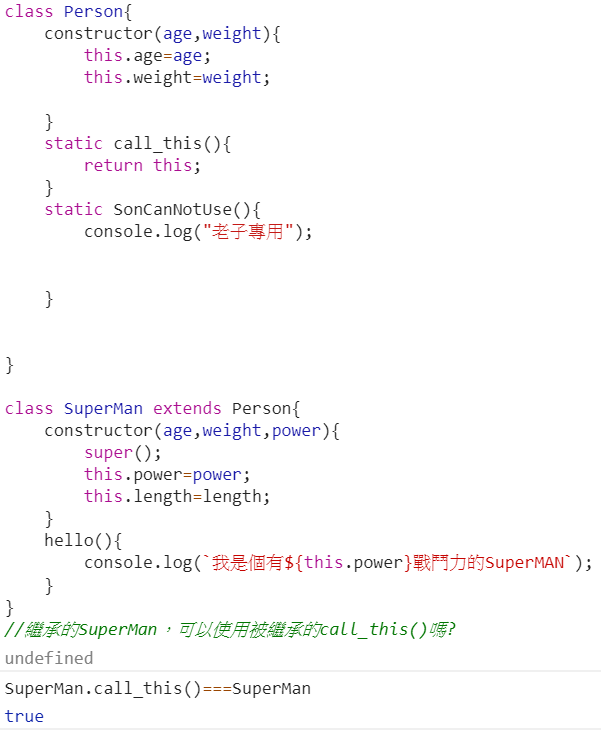在Object 中已經有內建許多的方法
來幫我助我們操作物件
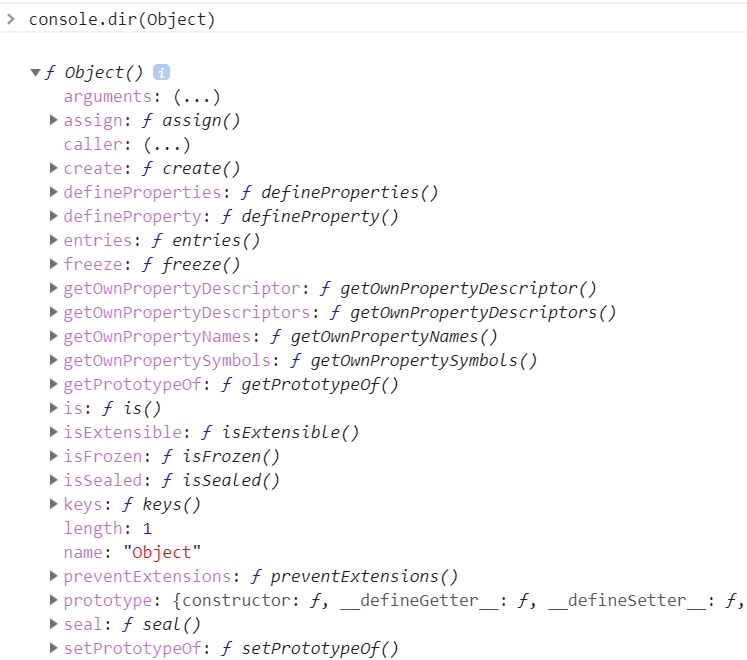
在這邊筆記一下各種內建方法
class Person{
constructor(age,weight){
this.age=age;
this.weight=weight;
}
call_this(){
return this;
}
}
var Lolo=new Person(13,50)
// 看看這邊的`this` 指向誰
console.log(Lolo=== Lolo.call_this());
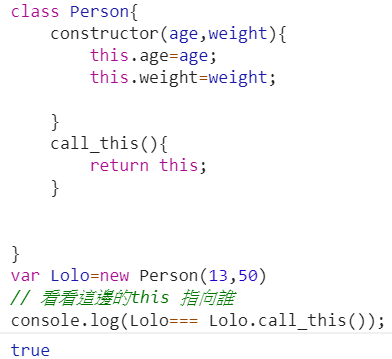
剛才的例子中 call_this() 在Person 中是不能直接調用的
必需從 Person.prototype中才能調用
這算是與實例共用的方法
那怎麼定義私有方法呢? es6 中提供了一個關鍵字:static
class Person{
constructor(age,weight){
this.age=age;
this.weight=weight;
}
call_this(){
return this;
}
static SonCanNotUse(){
console.log("老子專用");
}
}
var Lolo=new Person(13,50)
Person.SonCanNotUse();
console.log("看看兒子能用嗎?")
Lolo.SonCanNotUse();
試試看大家就可以發現
瀏覽器跟我們說 SonCanNotUse 不是一個function !
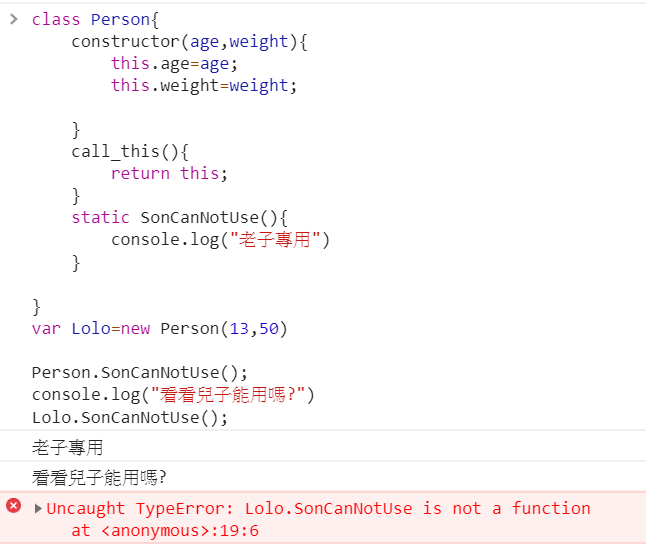
頗富好奇心的我們來扒開他們看看到底怎麼一回事
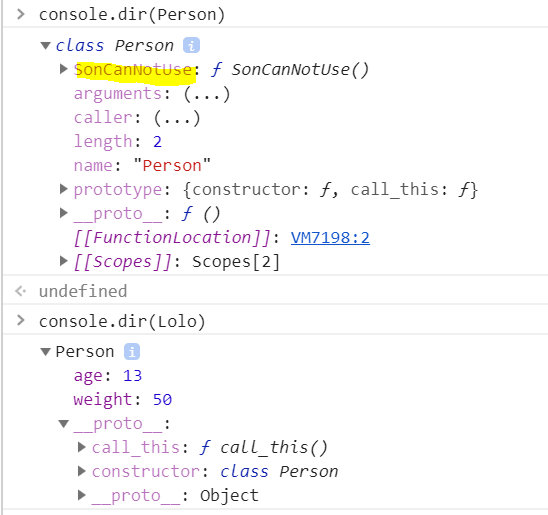
果然只有爸爸有
這就是老師父,總是要留壓箱寶,不傳弟子的
咦,那我們很好奇
既然是「私有」的方法
那兒子並不能呼叫
那在這邊用this 到底指向的是誰呢?
根據我們前面的推測…誰呼叫的就是誰的
所以只有爸爸能呼叫…那應該就是指向爸爸...?
讓我們來實驗看看,把剛剛的call_this()加上static
class Person{
constructor(age,weight){
this.age=age;
this.weight=weight;
}
static call_this(){
return this;
}
static SonCanNotUse(){
console.log("老子專用");
}
}
var Lolo=new Person(13,50)
Person.call_this()===Person
我們果然得到了ture!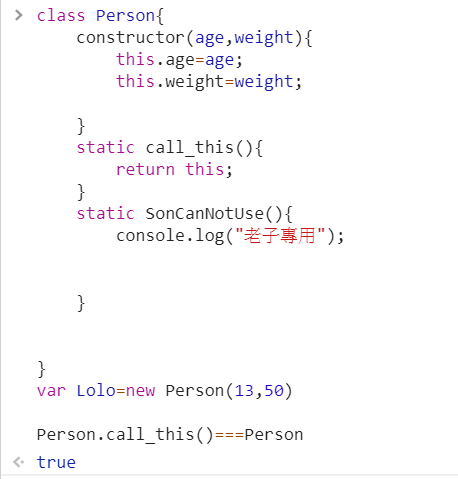
不過雖然私有方法實例不能夠使用
但我們如果想繼承,行不行呢?
如果不能繼承那是不是很沒用阿
這樣要寫重覆的程式碼咧~
當然,事實就跟我們希望的一樣,如果是繼承的class 是可以使用被繼承class的私有方法的
下面先來小試身手
class Person{
constructor(age,weight){
this.age=age;
this.weight=weight;
}
static call_this(){
return this;
}
static SonCanNotUse(){
console.log("老子專用");
}
}
class SuperMan extends Person{
constructor(age,weight,power){
super();
this.power=power;
this.length=length;
}
hello(){
console.log(`我是個有${this.power}戰鬥力的SuperMAN`);
}
}
//繼承的SuperMan,可以使用被繼承的call_this()嗎?
我們明天再來好好談繼承
